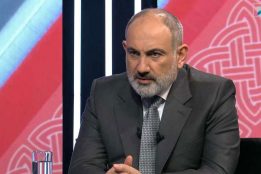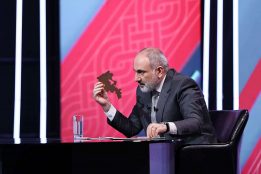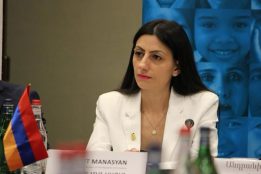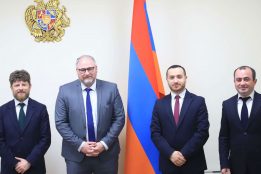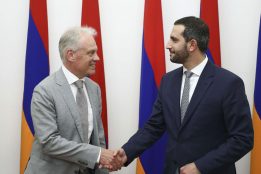Asaf Romirowsky (an adjunct scholar at the Middle East Forum and the Foundation for Defense of Democracies) and Alex Joffe (a Shillman-Ginsburg Fellow of the Middle East Forum) touched upon developments in Syria. Find the full text below.
When two employees of UNRWA, the United Nations organization for Palestinians, were killed in Syria, one by a sniper and the other in a crossfire, the organization responded by deploring “the tragic loss of life.” It was even more subdued when Syrian artillery shells slammed into a United Nations school for Palestinians in a Damascus suburb, as it called for “all sides to refrain from conducting the conflict in civilian areas and to comply with their obligations under international law.”
These mild responses were utterly unlike the cries of condemnation and calls for war-crimes investigations that came forth when an Israeli shell struck outside an UNRWA school during the 2009 Gaza. But double standards are sometimes revealing. The responses point to a new predicament for UNRWA and Palestinians. Simply put, they are no longer the Middle East’s premier refugees. Some three hundred thousand Syrian refugees are now registered with the UN in neighboring countries, with estimates of up to seven hundred thousand refugees by year’s end.
The way the UN deals with these developments is instructive. Syrian refugees must rely on the United Nations High Commissioner for Refugees, which deals with crises the world over. Palestinian refugees have their own dedicated organization, which for more than sixty years has acted as their internationally funded health, education and welfare ministry. UNHCR has a staff of 7,600 spread across 126 countries. UNRWA has a staff of twenty thousand in the West Bank and Gaza, Jordan, Lebanon and Syria. UNHCR’s budget in 2010 was $1.3 billion, while UNRWA’s was roughly $600 million. One organization is about helping refugees; the other is about keeping Palestinians refugees.
The amount of international money and attention paid to the Palestinian refugees has no precedent. For decades, it has relied on the predictable and concerted efforts of Arab and Muslim states to demand ever-increasing amounts of money from Western donors, as well as majorities in the UN General Assembly who will condemn every Israeli abuse, real or imagined, of Palestinians.
The rebellions across the Middle East and the underlying Sunni-Shia conflict that is tearing Syria and other countries apart have changed the rules of the game. The Assad regime and Syria supported UNRWA as a weapon against Israel and the United States rather than out of sympathy for the Palestinians. Palestinian terror groups including Hamas and Islamic Jihad also have long been based in Syria and, like Hezbollah, have benefitted from the Assad regime’s patronage. But this support also had a price—the refusal of Syria to permit integration of fellow Arabs, namely Palestinians, into the Syrian society in which they have resided for six decades.
Unlike Lebanon, the 470,000 Palestinians in Syria have been granted the right to work in any profession but are not citizens and cannot own property besides the houses in which they reside. But most Palestinians in Syria have never known any other home and are effectively as Syrian as other groups in that country’s ethnic-religious patchwork. Unlike Christians, Druze and other groups now being turned into refugees or internally displaced persons, Palestinians have the UNRWA to provide support and act as their advocate. Syrian refugees will now ask why one resident population has its own UN support organization while the rest do not.
But broader Arab and international support for UNRWA and the Palestinian cause can no longer be taken for granted. Nominally, the Palestinian issue is the only thing that can unite the Arab and Muslim worlds, even though in material terms their support has been utterly trivial. Now, the Arab and Muslim worlds have been gripped—and sharply divided—by a genuine humanitarian tragedy. The Palestinian issue is no longer as immediate.
UNRWA must now compete for attention and support while not alienating either the Baathist regime or the rebels and their various patrons. UNRWA is therefore playing a cautious game. The organization has a patented sense of outrage, honed against Israel, as well as a keen sense of public relations. But these cannot be used against Syria, which could, as in Kuwait in 1991, simply expel Palestinians without any international challenge. Palestinians themselves are equally unaccustomed to the lack of attention and to assuming a secondary position in the Arab world’s litany of crises, even as they have been maintained as second-class citizens for decades by states such as Syria or Lebanon.
The tragic scale of the human-rights crisis in Syria—some thirty thousand dead, hundreds of thousands displaced and murderous abuses on all sides—has put the Palestinian situation in proper perspective. Decades of unwillingness to resettle Palestinians on the part of Syria, the UN and the Palestinians themselves have again had the unintended consequence of making Palestinians vulnerable. Any just solution to the Syrian situation will demand that Palestinians be granted full citizenship rights and at the same time be made to stand on their own two feet without special international aid that only retards their reintegration and infuriates their neighbors. Such a solution would also inevitably put UNRWA out of business. UNRWA is more likely to play a quiet waiting game. It should not be permitted to do so.

















